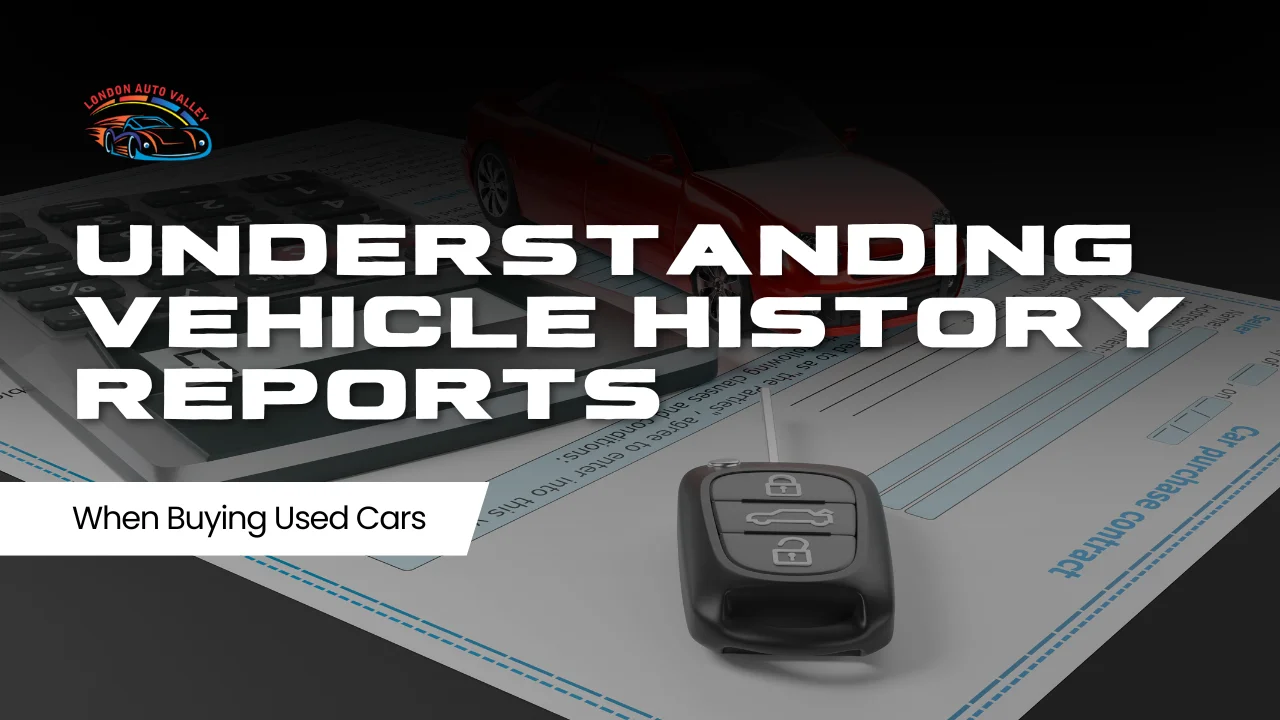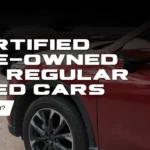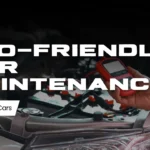

Understanding Vehicle History Reports When Buying Used Cars
Thinking about buying a used car in Canada? Whether you want to upgrade, buy for your business, or find a reliable and affordable option, don’t forget the vehicle history report. This report gives you essential details about a car’s past, helping you avoid problems and make a smart choice. At London Auto Valley, a trusted used car dealer in Canada, we believe everyone should have access to complete vehicle information. Knowing why these reports are important and how they affect your buying decision is essential for a confident purchase.
What Is a Vehicle History Report and Why It Matters
A vehicle history report is not just a piece of paper; it’s a look into a car’s life. These reports give details about the car’s ownership, accidents, title status, mileage, and service history. They use data from motor vehicle records, insurance companies, repair shops, and police.
Without this important information, you might be buying a car without knowing its actual condition. A car may seem perfect on the outside, but past damage or ownership issues could mean problems ahead. A history report helps you avoid future troubles.
Key Information a Report Typically Includes:
- Know who has owned the vehicle now and in the past.
- Check for any accidents or damage records.
- Verify accurate odometer readings and consistent mileage.
- Understand the title and registration status in different provinces.
- Look for any open recalls or unresolved issues from the manufacturer.
- Know how the vehicle was used before, like personal use, rental, taxi, or fleet.
By understanding this information upfront, buyers can make confident decisions and avoid surprises.
How Vehicle History Reports Fit Into the Used Car Buying Process
Buying a used car is more than just liking how it looks. It’s a careful process that needs attention. After you choose the make, model, budget, and features you want, the next step is to get a vehicle history report. Do this before test driving or making a deposit.
Why It Matters Early:
- It helps you find hidden problems before you get too attached.
- You can quickly remove risky cars from your list.
- It gives you an advantage when negotiating the price.
- It builds trust when buying from dealers like London Auto Valley.
Combining this step with a mechanical inspection and a trustworthy seller can greatly improve your chances of getting a reliable car.
Where Do These Reports Come From?
In Canada, several trusted companies provide vehicle history reports. They collect data from official registries, insurance claims, provincial records, and repair shops.
Trusted Services You Can Use:
- CARFAX Canada – The most trusted option in Canada, used by many dealerships.
- AutoCheck – Popular in the U.S., especially for imports.
- VINCheck – A free tool from insurance and consumer groups.
These reports use the vehicle’s 17-character Vehicle Identification Number (VIN), which is like a unique fingerprint. When you check a report, ensure it shows the full VIN and the latest updates from verified sources.
Decoding the Report: What Should You Look For?
Reading a vehicle history report can be confusing, especially with all the technical terms. However, by focusing on a few important sections, you can easily understand what to look for.
Major Red Flags to Investigate:
- Frequent Ownership Changes: This might suggest problems that led to resale.
- Salvage, Rebuilt, or Irreparable Titles: These show the car had major damage and may not be safe.
- Odometer Rollbacks or Tampering: This affects the car’s value and reliability by showing false mileage.
- Collision Records: Look for details about the damage, not just if an accident happened.
- Lack of Maintenance History: Regular service records indicate responsible ownership.
If anything is unclear or worrying, ask questions or get advice from a mechanic before making a decision.
How Dealers Use Vehicle History Reports to Build Trust
Reputable dealers in Canada, such as London Auto Valley, use vehicle history reports to focus on their customers. They aim to provide not just a product but also reassurance.
How It Builds Confidence:
- Shows a commitment to honesty
- Proves the dealership is open and trustworthy
- Helps set fair prices and justify value
- Encourages customers to ask questions and feel confident
Offering a report for every vehicle has helped these dealerships gain loyal customers and receive referrals through word-of-mouth.
Common Myths About Vehicle History Reports
Vehicle history reports are easy to find, but many myths can confuse buyers.
Common Misconceptions:
- “A clean report means the car is perfect.” This is false. A clean report just means no problems were reported. There may still be hidden damage or neglect. Always get a physical inspection.
- “Only older cars need a report.” Every car, no matter how new, should have a history check. Even newer cars can have hidden issues like flood damage or repairs.
- “They’re too expensive to be worth it.” Most reports cost under $60. This is a small price to pay to avoid buying a bad car.
Tips for Buying Used Cars Using Vehicle History Reports
A vehicle history report contains a lot of useful information. Here’s how to use it when buying a used car:
What Smart Buyers Do:
- Verify Odometer Accuracy: Make sure the mileage matches the service records.
- Check Ownership History: Fewer owners usually mean better care for the car.
- Review Service History: Regular maintenance is a good sign.
- Compare with Listing Claims: Make sure the report matches what the seller says.
- Use It to Negotiate: If you find problems, use them to negotiate the price or decide to walk away.
Each detail in the report helps you understand the car’s history better.
Integrating Reports Into Your Car Shopping Routine
Including vehicle history reports in your used car shopping process is essential. At London Auto Valley, we advise every buyer to follow these steps:
- Research makes and models that fit your needs.
- Check listings and shortlist your top choices.
- Get a history report for each finalist.
- Schedule a test drive and ask important questions.
- If necessary, take the car to a trusted mechanic.
By doing this, you shift from reacting to situations to taking charge, which protects your money and helps you avoid future regrets.
When a Vehicle History Report Isn’t Enough
Vehicle history reports are helpful, but they don’t catch every problem.
What to Do Beyond the Report:
- Inspect the Vehicle: Look for rust, misaligned frames, worn tires, and leaks.
- Get a Mechanic’s Check: A professional can find engine issues or hidden problems.
- Take a Test Drive: Experience the suspension, steering, and brakes yourself.
- Check VIN Stickers: Make sure they match on all parts to spot replacements.
At London Auto Valley, we promote transparency and encourage buyers to dig deeper. We’re here to help you feel confident in your purchase.
Make Smarter Decisions With Confidence
A vehicle history report is a key tool for buying a used car. It helps you avoid bad deals, find the right value, and feel sure about your purchase.
Always get this report, whether you’re buying locally or from far away. Choose dealers who provide it openly. At London Auto Valley, we aim to give every customer the information and confidence they need. Visit our homepage to see our reliable selection of used cars, all with complete history reports.
Add a comment Cancel reply
Comments (0)
Categories
- Blog (19)
Recent Posts
About us

Related posts


Certified Pre-Owned vs. Regular Used Cars: Which is Better?

Eco-Friendly Car Maintenance Tips for Used Cars









